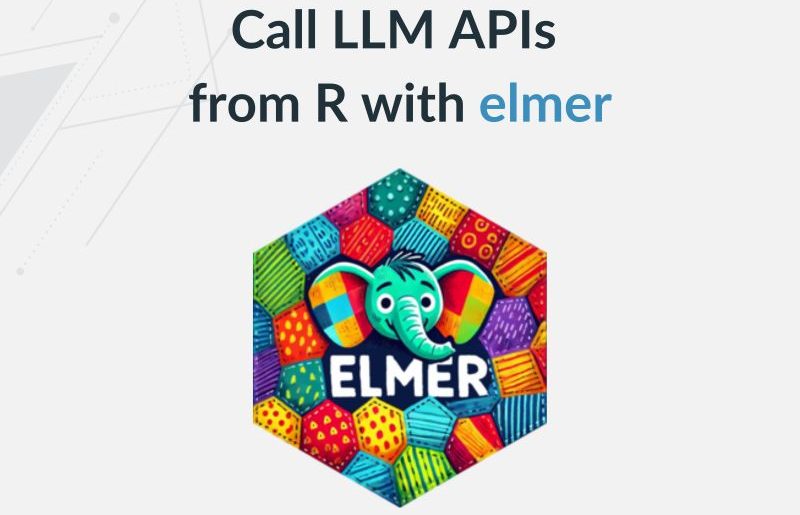With the release of the Elmer package, data scientists and R enthusiasts can now seamlessly interact with some of the most popular large language models (LLMs) directly within their R environment. Developed as a user-friendly wrapper, Elmer simplifies access to OpenAI’s GPT, Google’s Gemini, and Anthropic’s Claude, integrating powerful language capabilities into R-based workflows.
Why Use Large Language Models (LLMs) in R?
LLMs have reshaped the way we approach tasks like data analysis, natural language processing, and even predictive modeling. While platforms like Python have had popular libraries to interface with these models, R users have been somewhat limited in accessing the latest LLMs until now. The Elmer package brings this functionality into R, bridging the gap and allowing R users to embed LLM interactions directly within their familiar environment. This integration is a game-changer for data analysts, researchers, and developers who want to harness the power of LLMs without switching platforms.
Getting Started with Elmer: Installation and Basic Setup
The Elmer package is designed to be simple and intuitive, even for users who are new to connecting with APIs in R. Here’s a quick guide on how to get started:
- Install the Elmer Package: If you haven’t installed it already, you can get Elmer from CRAN using the following command:
install.packages("elmer")2. Set Up API Access: Elmer requires API keys to connect with each LLM provider. After obtaining API keys from OpenAI, Google, or Anthropic, you can securely store them in R using environment variables or by directly passing them when calling the model functions.
3. Initialize a Chat Session: The syntax for initializing a chat session is straightforward. You can specify the model you wish to use, along with any additional parameters like the system prompt and whether you’d like the conversation to echo in the console.
For instance, to start a session with GPT-4, you can use:
library(elmer)
chat <- chat_openai(
model = "gpt-4o-mini",
system_prompt = "You are a friendly but terse assistant.",
echo = TRUE
)
live_console(chat)Similarly, starting a session with Google’s Gemini model is just as simple:
chat <- chat_gemini(
model = "gemini-1.5-flash",
base_url = "https://generativelanguage.googleapis.com/v1beta1/",
echo = TRUE
)
live_console(chat)Practical Applications of Elmer in R
With Elmer, users can easily integrate LLMs into various data-centric tasks. Here are a few practical scenarios where Elmer’s access to GPT, Gemini, and Claude models can prove invaluable:
- Data Exploration and Summary: AI models like GPT-4 can help generate summaries of data files, providing instant insight into the contents of datasets. This can be particularly useful for initial data exploration and hypothesis generation in research projects.
- Natural Language Processing (NLP): Whether you’re working on sentiment analysis, text classification, or topic modeling, Elmer allows you to leverage the power of LLMs for advanced NLP tasks. For example, you can ask models to label, categorize, or even generate text based on input data, significantly speeding up text-processing workflows.
- Coding Assistance and Debugging: Debugging code is a frequent part of any data scientist’s life. Elmer enables R users to call LLMs for on-demand coding assistance, helping resolve errors, optimize functions, or generate code snippets on the fly. The model can suggest functions, explain errors, or refactor code for better performance.
- Interactive Data Analysis: By connecting R’s analytics capabilities with the conversational power of LLMs, you can create a more interactive analysis process. For instance, users can prompt the model to explain insights or generate visualizations directly within the R console, enhancing the interpretability of results.
Final Thoughts
Elmer represents a significant step forward in democratizing access to large language models for R users. As the demand for LLM integration in data science continues to grow, tools like Elmer will play a crucial role in bridging the gap, allowing professionals across fields to leverage AI-powered insights without leaving their primary development environment.
Whether you’re conducting research, building models, or exploring new datasets, Elmer offers a convenient, flexible solution for bringing the latest in language model technology into your R workflows. It’s a promising tool for any data scientist, researcher, or developer looking to expand their capabilities by integrating AI directly within R.

